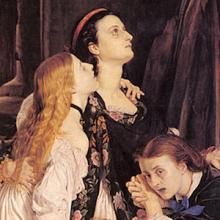Browse
Early Modern (1450 CE - 1800 CE)

Review
Global Architectural History Teaching Collaborative
Perhaps most interesting and relevant for world history teachers and students are the modules that make connections across space and time.
Teaching
Long Teaching Module: Women and Empire
This teaching cluster assembles an array of primary and secondary sources, as well as teaching strategies and lesson plans, for educators to effectively teach the important roles women played in colonial and imperial projects from the 17th century to the 20th century.

Review
Edsitement
The site contains over 500 lesson plans in a variety of humanities related subjects including history, literature, and art.Methods
Primer: Tasting and Hearing the Past
Experiencing the full spectrum of world history involves all the senses. World historians not only use their eyes to see what happened; they not only read or otherwise examine written and visual evidence.

Review
Early Caribbean Digital Archive
The ECDA is an essential educational resource for studying the history of enslaved and free African, Afro-creole, and Indigenous peoples of the Caribbean, European imperialism and colonialism, and the history of the Caribbean within the wider Atlantic World.
Review
World Digital Library
The World Digital Library is a free online archive of over 19,000 culturally significant primary source materials from around the world.
Review
Slave Voyages
Slave Voyages is an essential project for those seeking to learn more about enslavement and imperial powers in the Atlantic World, the transatlantic slave trade and Middle Passage, and the African diaspora.
Review
Constitute: The World’s Constitutions to Read, Search, and Compare
Constitute provides full text for almost all active constitutions around the globe, making it a powerful teaching tool for government, political history, and civic engagement.
Source
A Hindu Princess Committing Sati against the Wishes of Emperor Akbar
This 18th century painting by Mohammad Rizā Naw'ī depicts Sati, the practice whereby an elite Hindu widow would commit suicide through self-immolation upon the death of her husband.

Review